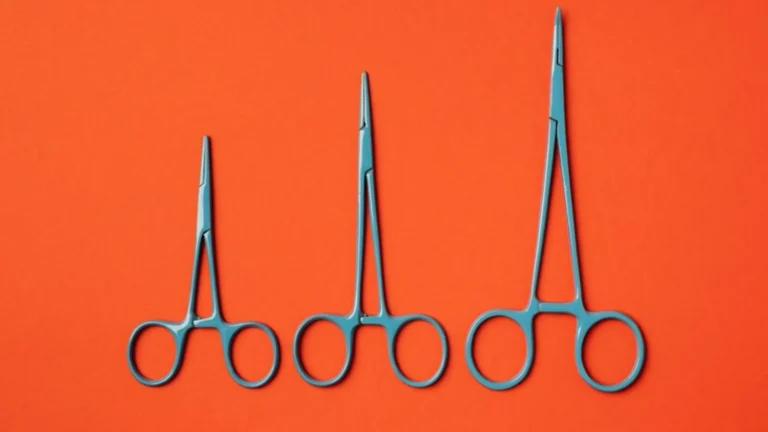Forceps are indispensable tools in various fields, including medicine, dentistry, and even in crafting and cooking. Understanding the different types, their uses, and the benefits they offer is crucial for professionals and enthusiasts alike. This guide provides a comprehensive overview of forceps, ensuring you have all the necessary information at your fingertips.
ALSO READ: Ultimate MovieOrca: Dive Into The Ocean Of Film Reviews
What Are Forceps?
Forceps’s are handheld instruments designed for grasping, holding, or manipulating tissues or objects. They come in various shapes and sizes, tailored for specific applications. The primary function of forceps is to provide better control and precision during tasks that require a steady hand.
Types Of Forceps
Medical Forceps
Medical forceps’s are widely used in surgeries, examinations, and other healthcare procedures. They are further divided into various categories based on their specific functions:
Hemostatic Forceps
Also known as clamps, hemostatic forceps’s are used to control bleeding by compressing blood vessels. Common examples include:
- Mosquito Forceps: Small and straight or curved, used for fine hemostasis.
- Kelly Forceps: Larger, with a more robust grip, ideal for larger blood vessels.
Tissue Forceps
These forceps’s are designed to grasp and manipulate soft tissues during surgical procedures. They often have teeth to enhance grip:
- Adson Forceps: Used for delicate tissues in surgeries, characterized by their fine tips.
- Allis Forceps: Used for grasping and holding tissues securely.
Extraction Forceps
Primarily used in dentistry, these forceps’s help in the extraction of teeth:
- Upper and Lower Forceps’s Designed specifically for the upper and lower jaw, ensuring effective extraction.
Dental Forceps
Dental forceps’s are specialized tools used in oral surgery and dentistry. They are designed to handle the unique challenges of the oral cavity:
- Universal Forceps: Versatile tools that can be used for various tooth extractions.
- Surgical Forceps’s Used for more complex procedures, such as impacted teeth.
Surgical Forceps
Surgical forceps’s are specialized for various surgical procedures, each tailored for specific functions:
- Debakey Forceps: Used in vascular surgery for gripping delicate tissues without causing damage.
- Babcock Forceps’s Ideal for holding delicate tissue like the intestines.
Laboratory Forceps
In laboratory settings, forceps’s are used for handling small samples or delicate instruments. They come in various forms:
- Tweezers: Simple and commonly used for grasping small objects.
- Scissor Forceps’s Combining the action of scissors and forceps’s for precision handling.
Kitchen Forceps
In culinary applications, forceps’s are handy for gripping and serving food. They enhance safety and hygiene:
- Tongs: Commonly used for grilling or serving.
- Salad Forks: A forked version that helps in serving salad efficiently.
Uses Of Forceps
Surgical Procedures
In the medical field, forceps’s are critical for various surgical procedures, allowing surgeons to grip, pull, and manipulate tissues with precision. They are essential for both minor and major surgeries.
Dental Extractions
In dentistry, forceps’s are crucial for tooth extractions, enabling dentists to remove teeth with minimal trauma to surrounding tissues. They provide the necessary leverage and grip needed for efficient extraction.
Laboratory Applications
Laboratories utilize forceps’s to handle samples, ensuring precision and preventing contamination. They are vital in experiments where small components need careful manipulation.
Food Preparation
In cooking, forceps’s help chefs handle hot food safely and serve dishes elegantly. They are invaluable in maintaining hygiene, as they eliminate the need for direct hand contact with food.
Benefits Of Using Forceps
Precision and Control
Forceps’s provide a high level of precision when gripping or manipulating objects. This is particularly important in surgical settings, where accuracy can significantly affect patient outcomes.
Safety
Using forceps’s minimizes the risk of injury to both the operator and the patient. In medical and dental practices, they reduce the likelihood of accidental cuts or punctures.
Improved Efficiency
With the right forceps’s tasks can be completed more efficiently. For example, dental forceps’s expedite tooth extractions, reducing surgery time and patient discomfort.
Versatility
The variety of forceps’s available ensures that there is a suitable tool for nearly every task, whether in medicine, dentistry, or cooking. This versatility makes them an essential tool across multiple disciplines.
Enhanced Grip
Forceps’s often feature textured grips or serrated edges that enhance their holding power, making them ideal for tasks that require a firm grasp.
Conclusion
Forceps’s are essential tools that serve a multitude of functions across various fields. From surgical procedures to culinary applications, their precision, safety, and efficiency make them invaluable. Understanding the different types of forceps’s and their specific uses can help professionals choose the right tool for the task at hand, ultimately improving outcomes and enhancing the quality of work.
ALSO READ: Unlock Success With The Keeper Standards Test Complete Guide
FAQs
What is a forcep?
A forcep is a handheld instrument used for grasping, holding, or manipulating objects and tissues, primarily in medical, dental, and laboratory settings.
How do I choose the right type of forceps?
Choosing the right forceps’s depends on the specific task you need to perform. For example, surgical procedures require specialized hemostatic or tissue forceps, while dental extractions necessitate dental forceps’s
Can forceps be sterilized?
Yes, medical and dental forceps’s can be sterilized using autoclaves or chemical sterilization methods to ensure they are safe for repeated use.
Are there forceps designed for specific medical procedures?
Absolutely! Different medical forceps’s are designed for specific procedures, such as hemostatic forceps’s for controlling bleeding or tissue forceps’s for manipulating soft tissues.
What are the advantages of using forceps in food preparation?
Using forceps’s in food preparation enhances hygiene, reduces the risk of burns when handling hot food, and allows for better control while serving dishes.

